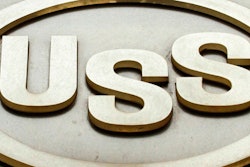
The man who helped invent the modern lithium-ion battery nearly 40 years ago recently led a study, at age 94, that could render that technology obsolete.
University of Texas engineer John Goodenough, along with senior research fellow Maria Helena Braga, developed an all-solid-state battery that is low-cost and non-combustible — and features a long battery life, fast charge and discharge rates and three times the energy density of conventional lithium-ion batteries.
"We believe our discovery solves many of the problems that are inherent in today’s batteries,” Goodenough said.
The new battery, detailed in the journal Energy & Environmental Science, utilizes solid-glass electrolytes that enable the battery's anode — or negative side — to be comprised of an alkali-metal such as lithium, sodium or potassium.
The alkali-metal anode increases the energy density of the positive side — the cathode — which could enable electric vehicles to drive much farther on a single charge. Laboratory tests also showed the battery could last more than 1,200 cycles with low cell resistance.
Conventional batteries rely on liquid electrolytes, which cannot be used with an alkali-metal anode. Current lithium-ion batteries can also short-circuit, which could result in fires or explosions.
The glass electrolyte also eases battery costs since engineers could replace relatively rare, expensive lithium with abundant sodium extracted from seawater. The new electrolyte can also function at below-freezing temperatures, which would make it more suitable for use in vehicles in colder climates.
Texas researchers are working on several patents and hope to collaborate with battery makers to further develop and test their system.
Goodenough, who continues to serve as the Virginia H. Cockrell Centennial Chair in Engineering at Texas, recently told The New York Times that he long hoped to develop a solution to the shortcomings of the lithium-ion battery, which he co-invented in his late 50s.
“Some of us are turtles; we crawl and struggle along, and we haven’t maybe figured it out by the time we’re 30," he told the Times' Pagan Kennedy. "But the turtles have to keep on walking.”






















